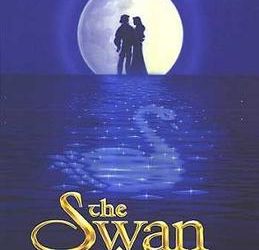Synopsis
In a manner that is oddly reminiscent of Bibo Bergeron and Don Paul’s 2000 animation, “The Road to El Dorado”, the dramedy, Gold Statue (2019) follows the adventures of two best friends, Chike (Kunle Remi) and Wale (Gabriel Afolayan) in their quest to find the golden statue of Yéyé.
The movie opens with a very crude display of jungle justice, a sad reality in Nigeria. The piquant scene shows an angry mob about to burn the battered Wale. Chike, the youth corps member, tries to stop them from doing this. This gripping scene effectively captures the viewer’s attention as Wale, who happens to be the narrator, transports us back to the events preceding his pitiable condition.
The duo first hear about the golden statue during one of their classes at the University of Lagos. The statue belonged to the Ilesha people of modern-day Osun State in the South-western part of Nigeria. The statue weighed approximately the same mass as 6000 tubers of yam (approx. over a tonne). In today’s economy, the statue is worth $500 million. The lecturer intimates that only one generation of custodians knew the exact location. The European explorers began a scramble for Yéyé’s golden statue. (Un)fortunately, they never found it. The existence of the statue was finally disregarded as a myth.
After the lecture, Wale tells Chike that his grandfather told him that same story when he was a child. Wale also tells him that his grandfather is the current custodian and the only one that knows the statue’s whereabouts. Chike dismisses this. There was no way such a huge amount of gold could remain undiscovered. The way he saw it if the golden statue of Yéyé existed, someone had definitely ferreted it away. But that didn’t deter Wale.
Wale tried bribing his grandfather into telling him the exact location of the statue, but like an authentic man of culture, Baba Esho (Peter Fatomilola) kept mum. To make sure the statue doesn’t fall into wrong hands, only one person at a time should know the statue’s location. Baba Esho was going to reveal the location of the statue to his first son, Wale’s uncle, Femi (Jibola Dabo) on his deathbed. This infuriated Wale. How sure was the old man that he was going to die that poetically? What if he suffered a heart attack or died from an accident?
As fate would have it, Baba Wale became ill not long after that. The quick-thinking duo bugged the old man’s room and eavesdropped while Baba Wale, using riddles, told his first son where the statue was buried. Thanks to Bryan (Kalu Ikeagwu), Chike’s school father, and his associates in Dubai, Chike and Wale pinpointed the statue’s exact location: Ilesha Maximum Prison.
The two were deflated but not for long. The discovery that the statue was not worth $500 million but rather $1 billion further motivated them. The two set their plans in motion. Chike and Wale were billed to go for their mandatory Nation Youth Service Corps (NYSC) Program. As Chike wasn’t an indigene of Osun State, he had no problem getting himself deployed to Osun State.
The situation was tricky for Wale as he was from Osun State. He tried to get his mother, Mrs. Esho to convince his father to influence his posting to Osun. Mrs. Esho (Sola Sobawole) just wanted her son to be safe and close to home. Unfortunately for our treasure hunters, Mr. Esho (Richard Mofe-Damijo) was not having that. In a display of tough love typical to most Nigerian fathers, Mr. Esho insisted his son serve in Adamawa. But as they say, where there is a will there is a way.
Wale didn’t go to Adamawa. He traveled to Ilesha and came up with a plan that would help them infiltrate the prison. Chike requested to be posted as the resident corps member at the prison while Wale, under the pseudonym Samuel Okon, an indigene of Akwa Ibom State, was to commit enough crimes to get him in prison. The two follow their plans to a T. The prison became Chike’s place of primary assignment while Wale/Samuel Okon gradually graduates in thieving activity. Everything went to hell in a handbasket when a mob catches Wale stealing a car. Thus, we are once again brought back to the scene at the beginning of the movie.
Wale is charged to court. As he is remorseful, the judge decides to give Wale a light sentence of 12 months as opposed to the full nine years for the crime he committed. Unfortunately, as the Minimum Prison in Ilesha was full, Wale/Samuel Okon was to be moved to the Minimum Prison in Calabar so he would be close to home. This unexpected kink in their plans was later solved when a friend of the Eshos, Barr. Dotun sees Wale/Samuel Okon and alerts the Eshos in Lagos.
Wale’s parents are heartbroken. It made no sense to Mrs. Esho that her privileged son had resorted to stealing cars. However, she refused to give up hope. Multiple serendipitous events lead to Wale/Samuel Okon being sent to the Maximum Prison, thus setting in motion the second stage of Wale and Chike’s plan.

After naturalizing in prison and familiarizing with the inmates of his cell and getting in the good graces of Capone (Rycardo Agbor) and his second-in-command Hammer, (Kevin Ikeduba), Wale/Samuel Okon comes up with a genius plan to help facilitate the excavation of the statue. The inmates at the cell are hardened criminals that are either on death row or facing life imprisonment. So when Wale tells Capone he has plans to dig them to freedom, Capone is naturally enthusiastic about it, effectively setting the pace for stage three of the plan. Thanks to Bryan and his Dubai associates and Chike, some digging and excavation tools are smuggled into the prison. The gullible inmates believe they are just digging for freedom and that the tools are there to make the process easier.
The inmates dig for months and as the tunnels get wider, their patience thins out. It gets to a point where they believe that Wale/Samuel Okon is playing them. Wale/Samuel Okon, cunning as ever, stanches their doubts and once more gets back in their good graces. Shortly after the mini-uprising, Wale hits the jackpot.; lodged inside a pillar is the statue. Wale/Samuel Okon doesn’t tell the inmates the truth behind the pillar, rather helps them to dig to their freedom. Unlike Julio and Miguel from El Dorado, Wale and Chike finally retrieve their treasure. But they are hit by the mother of all curveballs…
Analysis

Gold Statue (2019) was soul food, especially after watching the fast-food-esque acting that characterized Namaste Wahala (2020). From the doggedness of the treasure hunting duo and the (ir)realities of prison life down to Sola Sobowale’s phenomenal acting and Capone’s emotional back story, Gold Statue (2019) is one for the history books. Sure, there were some inconsistencies and problematic points, for example, the CGI that left a lot to be desired and the female inmates’ grating, americanah accents (which was frankly unnecessary). However, these issues were not so serious as to detract from the overall quality of the movie.
Tade Ogidan is a very circumspect director. Asides from having a gripping storyline, characters with rich backstories, and multiple conflict points, I love how (most) members of the cast connected with and rendered their roles beautifully. The fact that it had none of the effusive and unnecessarily superfluous acting that is common with Nigerian movies is also a huge plus in my book. I also loved how Capone’s story was an inversion of Andy Dufresne’s story in Shawshank redemption (1994), although I felt his raspy voice was overdone. While the movie is rich with a lot of themes, these stood out for me.
Themes
Jungle Justice

While it is not a major theme in Gold Statue (2019), this theme stood out because of how relatable it is to the average Nigerian. Regarding issues of theft, Nigerians rarely leave justice in the long arm of the law. They take it upon themselves to deal with the offender accordingly.
The barbaric nature of this act is lost on them. As we see in the opening scene of the movie, they beat Wale to a pulp, but that was still not enough for the angry mob. Only his charred remains would atone for his sins. As you watch one of the onlookers douse him in fuel and with chilling calm light a lighter, as a Nigerian, your blood runs cold as this is something that happens at least three times a year in most major markets. The situation becomes even sadder when you realize some innocent people actually get killed because of this insane practice.
Determination as a Dynamic Force

Determination is translational. It causes motion, breaks down the strongest of walls, scales the highest of mountains, and finds a way where there is no way. This was a central theme in Gold Statue (2019) and essentially defines the core of Wale’s character. Sure, Chike did his part too and had determination in spades but Wale took it to the Olympics, man. I’d have stopped at the discovery that the gold was buried under the prison but this young man did the unthinkable. He went beyond what was rationally possible.
Oddly, I think Wale is a metaphor for the Nigerian youth. A lot of us face daunting and diverse challenges without ever thinking of giving up and are ready to go way beyond thhe call of duty just to see to the realization of our dreams. The full force of Wale’s determination hits you when you realize he suffered multiple injuries, endured torture, and almost died in his quest for the statue but he never for once thought of quitting. Like you have to be a special kind of determined (or desperate) to be willing to go to prison to realize your dreams. While his determination was channeled into what I would describe as a less than honorable venture, I think there is a lesson to be learned and applied in our individual lives.
The Enduring Nature of a Mother’s Love
In the words of Washington Irving, a mother’s love endures through all. While everyone quickly accepted Wale’s new “theiftancy” title and affectation for all things criminal, Mrs. Esho maintained to the very end that something was wrong. She had unwavering faith in her son and how she had raised him. Things were not adding up. She knew something was amiss and always seized every opportunity to make it known. At different scenes that portrayed this theme, I couldn’t help but think that from her character and acting in King of Boys (2019) to her emotive acting, Sola Sobowale was definitely the right fit for this character.
The Flexible Nature of (Nigerian) Parenthood
Another minor theme that stood out because of its banality in the Nigerian society. When the Eshos discover about Wale’s criminal activities, they are naturally heartbroken and disappointed. However, Wale’s father says something to his wife something that gets you thinking.
“He is your son…”
It is very common, especially with the older generation, that the child ceases to be “of the father” when (s)he does something wrong. Most parents do their best. Unfortunately, life is not a machine where the effort you put in is, all things being equal, directly proportional to the results obtained. Good parents raise kids that turn out to be bad. This may or may not be the fault of the parents. What is wrong is one parent blaming the outcome on another parent.
The Commerciality of Human Nature

It is said that everyone has a price, all you have to do is find it. While I disagree with this, I will concede that most people do have a price and Gold Statue (2019) brings this commerciality to light beautifully. We see it when Mrs. Esho influences the Head Warder (HW) to circumvent the court’s orders and keep Wale in Ilesha and subsequently when Mrs. Esho buys her son safe passage in the prison with food. We also see this when the HW falls in cahoots with the duo after learning about the statue and its full monetary value. The Zonal coordinator also keys in and gets his slice of the golden cake.
It was also interesting to see how committed everyone included in this heist became at the mention of the statue’s value. To me, the most appalling manifestation of this theme was when the governor of Osun state was insisting that the statue- and the money, either wholly or in part- belongs to the Osun people or their representative (a.k.a himself). All these go to show how people change, shed their skin, or don new ones when there are benefits, financial or otherwise, to be accrued.
The African Disregard for Prized Artefacts
To Wale, the statue was his ticket to the good life. It held no sentimental or cultural meaning to him. This attitude is sadly quite common in Nigeria. Here, ancient/traditional art pieces are either seen as fetish idols to be destroyed or commodities to be sold. Very few people think of conserving and curating these rare pieces. People don’t really understand that these pieces are the embodiment of our people’s traditions and customs and the only way through which the past.
Verdict
Strength of the Plot: 7.5
Plot Progression: 8.0
Character Development: 9.0
Visuals and CGI: 4.0
Total: 7.1
On a scale of 1 to 10, Gold Statue (2019) is a 7 and the kind of movie that convinces you that good things can come from Nollywood, sorry Nazareth.
Originally published on Medium.
Like what you read? Check out The Unicorn Called Unconditional Love and Discovering the Sole Purpose of Life: Review of Soul (2020).








Comments 1